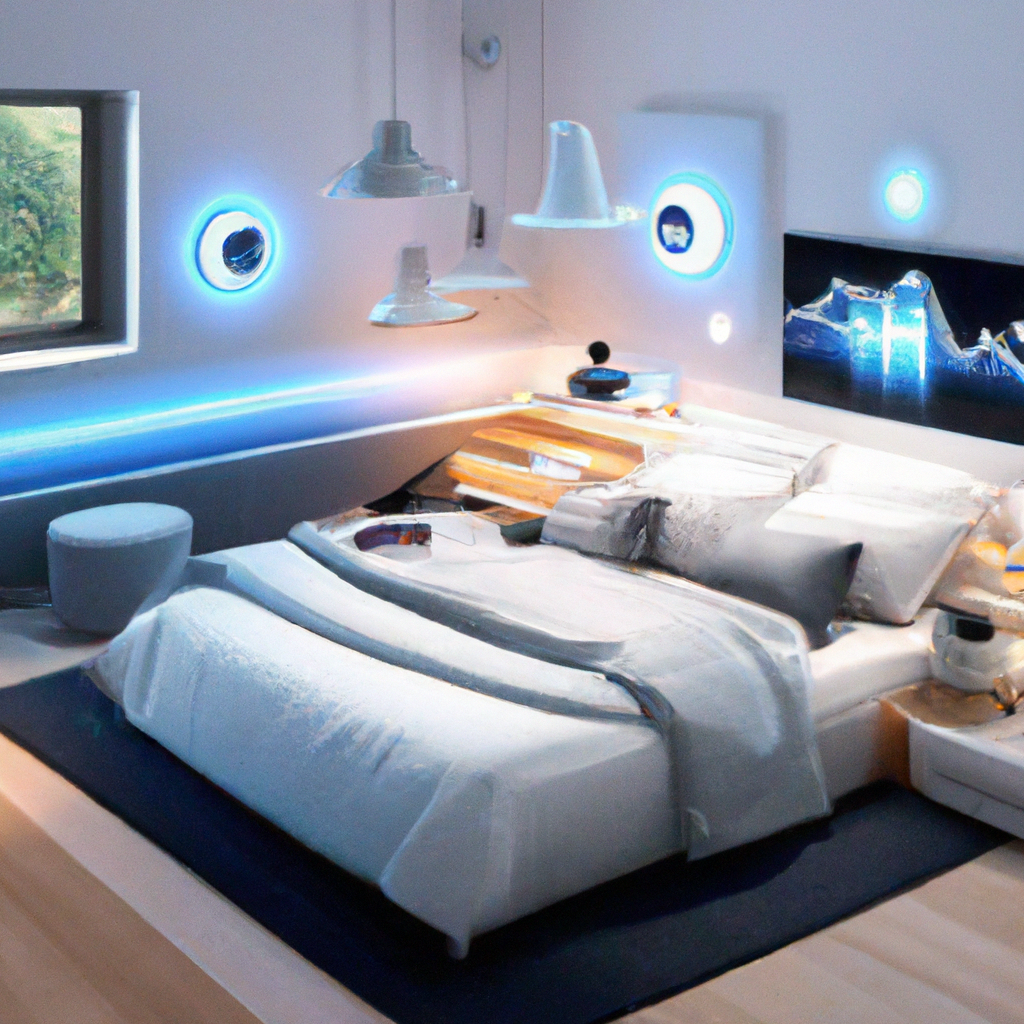Imagine waking up every morning feeling refreshed and energized, ready to conquer the day ahead. Well, with the help of a smart bedroom, that dream can become a reality. By utilizing different technologies and strategies, you can transform your bedroom into a haven of optimal sleep. From tracking your sleep patterns to setting the perfect temperature and lighting, this article will guide you through the steps of creating the ultimate smart bedroom for a restful and rejuvenating sleep experience. Say goodbye to restless nights and hello to the best sleep of your life!

Creating the Ultimate Smart Bedroom for Optimal Sleep
Having a good night’s sleep is essential for your overall well-being and productivity. Creating the ultimate smart bedroom can help you optimize your sleep patterns and ensure you wake up feeling refreshed and rejuvenated every morning. By investing in the right mattress, bedding, controlling room temperature, optimizing lighting, reducing noise levels, implementing smart alarm systems, using sleep tracking devices, utilizing aromatherapy, managing air quality, and applying technology to improve sleep habits, you can create an environment that promotes deep and restful sleep. Let’s explore each of these aspects in detail to help you create the ultimate smart bedroom.
Investing in a Quality Mattress
A quality mattress is the foundation of a good night’s sleep. There are various types of mattresses available in the market, including memory foam, latex, innerspring, and hybrid mattresses. It’s important to consider your personal preferences and sleep requirements when choosing a mattress. Memory foam mattresses are known for providing excellent pressure relief, while latex mattresses offer great responsiveness and durability. Innerspring mattresses are more traditional and provide good support, while hybrid mattresses combine the benefits of both memory foam and innerspring mattresses. Take your time to research and try out different options to find the one that suits you best.
When selecting a mattress, it’s crucial to consider the firmness level. The ideal level of firmness depends on your preferred sleeping position and personal comfort. Side sleepers usually benefit from a slightly softer mattress to relieve pressure on the shoulders and hips, while back and stomach sleepers generally prefer a firmer surface for better spinal alignment. Additionally, assessing motion transfer is important, especially if you share the bed with a partner. A mattress with good motion isolation will minimize disturbances caused by movement. Lastly, breathability is a key factor to keep in mind. Look for mattresses with cooling technologies and breathable materials to prevent night sweats and discomfort.
For a truly smart experience, explore smart mattress options. These mattresses can track your sleep patterns, adjust firmness and temperature as per your individual needs, and provide personalized sleep data.
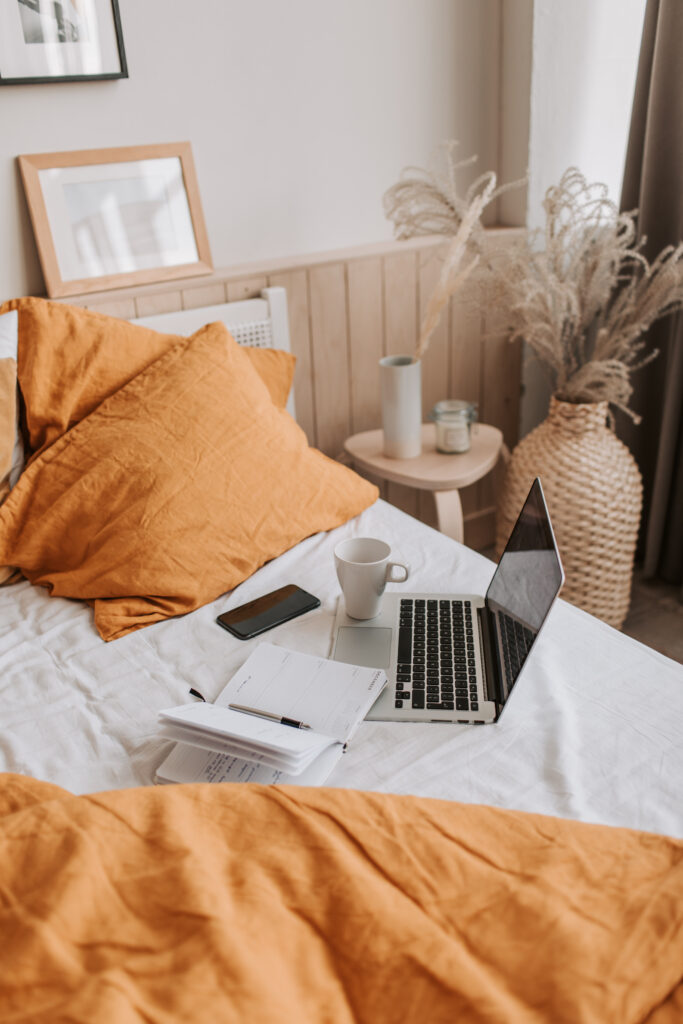
Choosing the Right Bedding
After investing in a quality mattress, choosing the right bedding is equally important for a comfortable and cozy sleep environment. Opt for bedding made from breathable fabrics, such as cotton or bamboo, as they allow air circulation and prevent overheating during the night. Consider the appropriate thread count based on your preferences and season. Higher thread counts are generally associated with softer and more durable sheets.
To further enhance the cooling effect, explore cooling bedding options, such as moisture-wicking sheets and mattress toppers. These materials are designed to regulate body temperature and keep you cool throughout the night. If you are prone to allergies, consider bedding made from hypoallergenic materials to minimize the presence of allergens and create a healthier sleep environment.
Controlling Room Temperature
Finding the ideal sleep temperature can greatly improve your sleep quality. The National Sleep Foundation recommends a temperature between 60 and 67 degrees Fahrenheit (15-19 degrees Celsius) for optimal sleep. To ensure a comfortable temperature throughout the night, consider installing a smart thermostat in your bedroom. Smart thermostats allow you to set and schedule the temperature, so you can wake up to a cozy environment without waking up to adjust the thermostat manually.
In addition to a smart thermostat, explore cooling and heating solutions specifically designed for beds. Bed cooling systems can regulate the temperature of your mattress, providing a refreshing and cool surface to sleep on. These systems usually include a control unit that can be easily adjusted to suit your personal preferences.
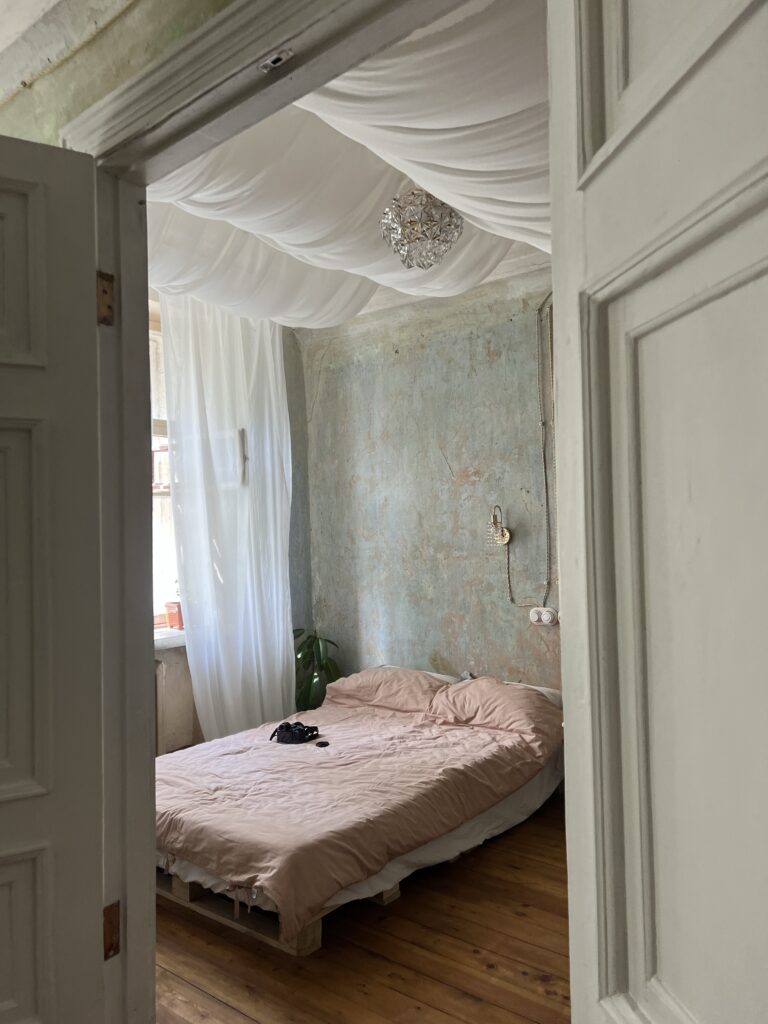
Optimizing Lighting
Creating a dark environment in your bedroom is essential for promoting quality sleep. Light exposure, especially from electronic devices, can interfere with your natural sleep-wake cycle. Consider installing smart lighting systems in your bedroom to optimize the lighting conditions. These systems allow you to adjust the brightness and color temperature of your lights according to your needs.
Replace your traditional light bulbs with smart light bulbs that can be controlled through your smartphone or smart speaker. This allows you to easily dim the lights or turn them off entirely without getting out of bed. Additionally, explore light alarms for wake-up. These devices simulate sunrise by gradually increasing the light intensity to wake you up naturally and gently.
Reducing Noise Levels
A quiet and peaceful sleep environment is crucial for undisturbed rest. Soundproofing your bedroom can significantly reduce outside noise and create a calm atmosphere. Consider adding soundproofing materials to your walls, such as acoustic panels or soundproof curtains, to minimize noise disturbances.
In addition to soundproofing, you can utilize white noise machines to mask unwanted sounds. White noise machines produce a consistent and soothing background noise that can help drown out external sounds. If you prefer more natural sounds, try sleep-enhancing soundscapes, such as ocean waves or rainforest sounds. There are also noise-canceling technologies available that use advanced algorithms to neutralize noise and create a tranquil atmosphere.
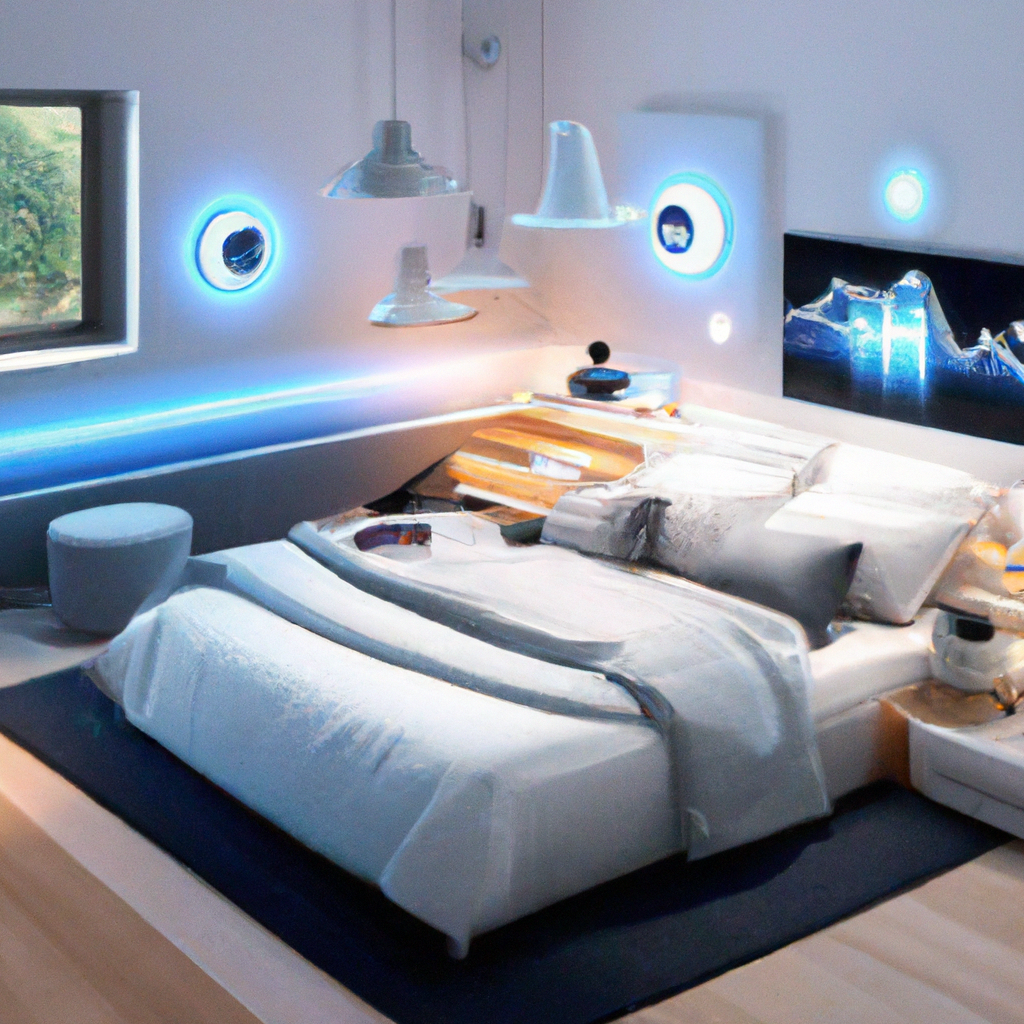
Implementing Smart Alarm Systems
Waking up abruptly to a loud and jarring alarm can leave you feeling groggy and exhausted. To improve your wake-up experience, consider using sleep cycle alarms. These alarms monitor your sleep patterns and wake you up during your lightest stage of sleep, ensuring a more gentle and natural awakening. Many sleep tracking devices and smartphone apps offer this feature.
Alternatively, explore gentle wake-up solutions. These alarms use gradually increasing light, vibrations, or soothing sounds to wake you up slowly and peacefully. Some smart alarm clocks even offer features like simulated sunrise and sunrise-simulating alarms to replicate the natural wake-up process.
Using Sleep Tracking Devices
Sleep tracking devices can provide valuable insights into your sleep patterns and help you understand your sleep quality. Wearable sleep trackers, such as smartwatches or fitness bands, can monitor your heart rate, movement, and sleep stages throughout the night. These devices often come with accompanying smartphone apps that provide detailed sleep data and suggestions for improvement.
If wearing a device on your wrist is uncomfortable, smartphone apps for sleep monitoring are also available. These apps use your phone’s sensors to track movements and analyze sleep duration and quality. Choose an app that suits your needs and integrates seamlessly with your other smart devices.
For more advanced sleep tracking, consider exploring devices that offer additional features like snoring detection, respiratory rate monitoring, and sleep environment analysis. Analyzing and utilizing sleep data can help identify patterns and make informed decisions to improve your sleep quality.
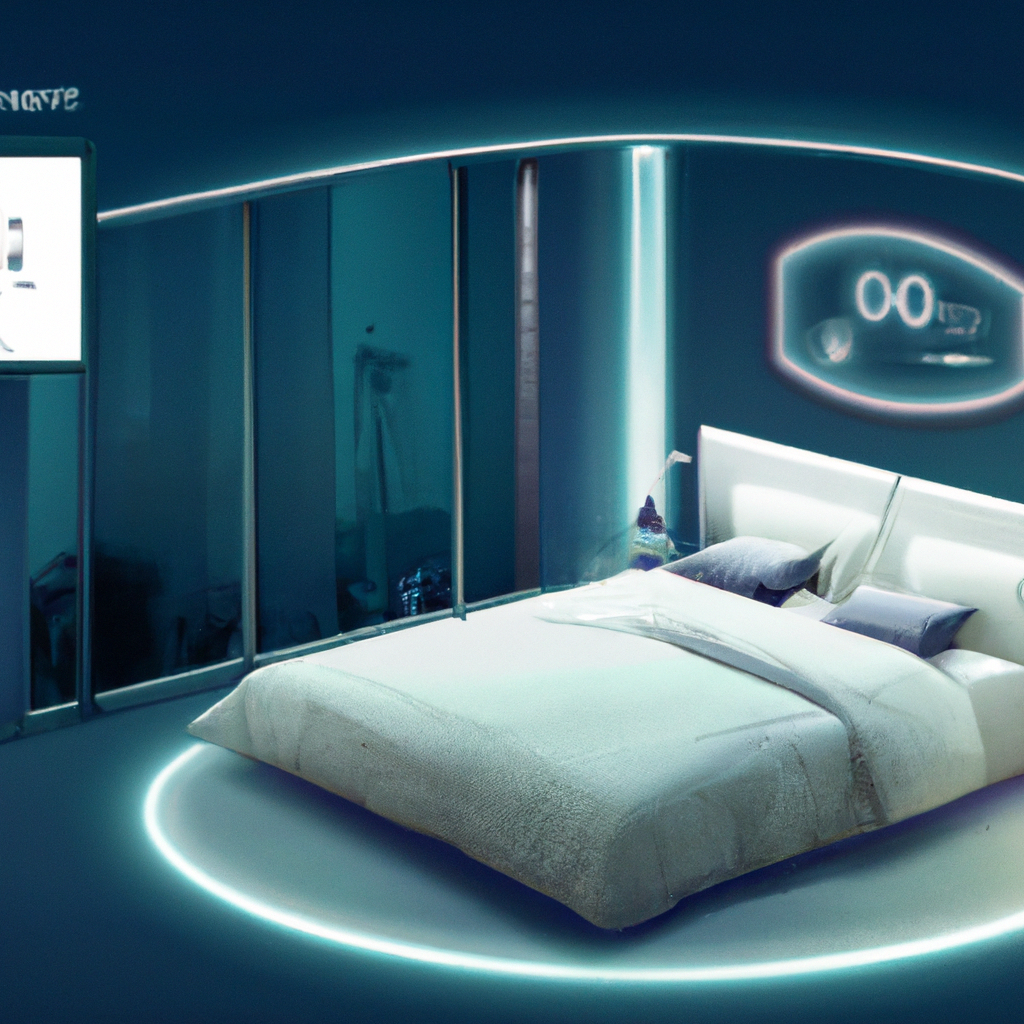
Utilizing Aromatherapy
Aromatherapy can be a soothing and relaxing addition to your bedtime routine. Certain scents have been found to promote relaxation and improve sleep quality. Lavender, chamomile, and bergamot are popular essential oils known for their calming properties. Experiment with different scents and find the ones that work best for you.
Utilize diffusers or aromatherapy machines to disperse the scents throughout your bedroom. These devices can release a gentle mist of essential oils into the air, creating a calming atmosphere that promotes sleep. Incorporate aromatherapy into your evening routine by diffusing oils a few hours before bedtime or adding a few drops onto your pillows or bedding.
Managing Air Quality
Air quality plays a significant role in creating a healthy sleep environment. Poor air quality can cause congestion, allergies, and disturbances in sleep. To improve air quality, ensure proper ventilation in your bedroom by opening windows or using a fan. Clean the air by using air purifiers or humidifiers to remove allergens, dust, and pollutants. Consider investing in smart air quality monitors that can provide real-time information about the air quality in your bedroom and alert you when it’s time to take action.
Applying Technology to Improve Sleep Habits
Technology has revolutionized the way we sleep and has introduced various tools and gadgets to improve sleep habits. Sleep apps and sleep-enhancing gadgets provide a range of features to help you track, monitor, and improve your sleep quality.
Explore sleep apps that offer relaxation exercises, guided meditation, or soothing music to help you unwind before bed. These apps can also track your sleep and provide insights into your sleep patterns. Incorporate relaxation and meditation apps into your bedtime routine to reduce stress and create a peaceful atmosphere for sleep.
Investigate guided sleep programs that utilize audio tracks or podcasts to guide you into a deep sleep state. These programs often include sleep-inducing sounds, storytelling, or meditation techniques to help you relax and drift off to sleep easily.
Artificial intelligence (AI) is also playing a growing role in sleep optimization. Smart sleep systems that integrate AI technology can analyze your sleep data, predict sleep patterns, and make personalized recommendations to improve your sleep habits. These systems learn from your sleep patterns over time and adjust their suggestions accordingly.
By following these steps and incorporating smart technology into each aspect of your bedroom, you can create the ultimate smart bedroom for optimal sleep. Enjoy the benefits of a well-designed sleep environment and wake up feeling refreshed, rejuvenated, and ready to tackle the day ahead. Sweet dreams!
